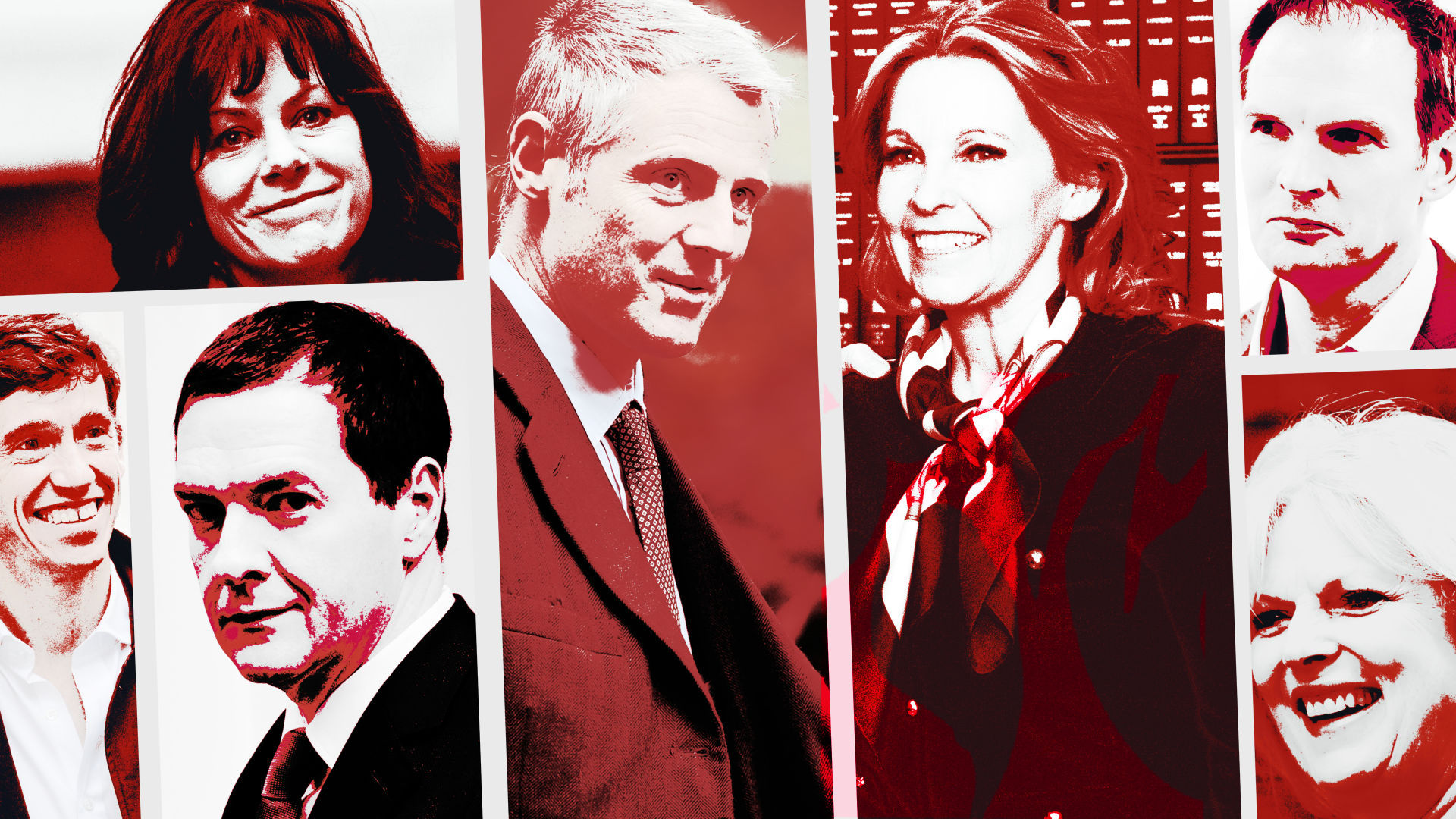Nick Boles was once at the heart of a mission to renew Conservatism. He was one of a small number of modernisers, central to the Cameron project, who ended up serving as Tory ministers. He quit over Brexit and this week made his public debut in a new job as an adviser to Rachel Reeves. He was chosen to introduce the shadow chancellor’s speech about how Keir Starmer’s government plans to revive the economy.
The lack of any serious clash of ideals between the main parties has allowed a lazy consensus to thrive
This is part of a new movement in British politics: Tories for Starmer. It’s something we will see a lot more of as Labour approaches power. This week also saw the defection of Natalie Elphicke, who was elected to her husband’s seat after he was arrested for sexual assault. She follows Dan Poulter, Tory MP for Central Suffolk until he defected last month. Rory Stewart, who not so long ago ran to be Tory leader, has said he would be interested in being a Labour peer in the Lords. And Zac Goldsmith, given a peerage by the Tories after losing his seat, says he may vote for Starmer. Andrew Cooper, another member of the Boles-Cameron set who ended up as Cameron’s pollster (and was put in the Lords for his services) is also now advising Labour.
Starmer will soon have a queue of former Tories waiting to take up places as his svengalis, with varying degrees of plausibility. Elphicke, in particular, is a stretch. ‘Don’t trust Labour on immigration,’ she used to say: ‘they really want open borders.’ Now she praises Starmer for changing Labour ‘out of all recognition’ and says the Conservative party is a byword for incompetence and a failure to build homes. Dan Poulter is being lined up to be a mental health adviser under Labour.
What Labour MPs on the left of their party will make of their new colleagues is another question. They will notice – as many have – that big-government Conservatism is now barely distinguishable from Starmer’s safety-first, bureaucratic Labourism. Sunak has stolen many of Reeves’s ideas – the windfall tax on oil firms being the most obvious example. Anticipating a policy he thought she might announce, he extended free childcare to infants over nine months.
The two parties are sliding into each other. It’s a new version of the Butskellism that defined the 1960s. With the ideological barriers eroding and one party merging into the other, it’s natural that we would see a flow of personnel. Anna Soubry, a minister under Cameron who quit over Brexit, now says she would back Starmer. Claire Perry O’Neill, previously a Tory transport minister, has denounced her former party and praises Starmer’s ‘fact-driven, competent political leadership’. George Osborne, meanwhile, has said that ‘Keir and Rachel’ are ‘more than capable of governing the country’.
Where will it end? Claire Coutinho, the estimable Energy Secretary, is trying to moderate the net zero climate agenda. She was opposed by Chris Skidmore when he was (briefly) a Tory energy minister. Then he resigned not just from the government but from parliament, forcing his constituents into a needless by-election so he could speed up his transition into the role of highly paid green lobbyist. He now says that he is ‘free from party political allegiance’, presumably as a prelude to his consultancy establishing good contacts with a Starmer government.
We learn that Better Earth, the consultancy that is being set up by Skidmore, is to be co-chaired by none other than Boris Johnson. Our former PM will be ‘overseeing the strategy and direction’ of Skidmore’s outfit and ‘representing the company at meetings with clients’. This is the same Boris Johnson who, as a newspaper columnist and editor of this magazine, held up the green establishment to ridicule with delicious regularity. He’s earned £8 million since leaving office, so why does he need to set himself up as a green consultant? He was, of course, a big net zero champion and turned the COP26 summit in Glasgow into a jamboree of unfunded spending commitments. He is writing his memoirs, which might be a public service if he can explain why he ditched Tory principles when it came to lockdown, gender, net zero and even public spending.
The lack of any serious clash of ideals between the main parties has allowed a lazy consensus to thrive, with inevitable results, including economic stagnation and mounting bills. Rishi Sunak does have clear ideas, in fact, but to look at his policies, it’s hard to see what decisions a Labour government would not have taken. We could call it Starmakism. It has created bridges between Labour and the Tories that politicians and advisers can easily cross.
Sunak is not entirely to blame. The pandemic forced the Conservatives to adopt a more big-government approach. But he is guilty of a certain defeatism: the sense that his hands are tied and that it’s not possible to do radical things, due to demographic or political factors. He thinks he’s out of time for serious reform – and with months to go until the next election he may be right.
But where is Starmer’s plan? Even the Tory defectors cannot highlight any credible Labour policy that would, for instance, stop the boats or restore economic growth. Any Tory MP dismayed at the current situation should stay and fight for a better agenda. It seems that Sunak will wait until the autumn for the general election. How many of his MPs will be left by that stage is another question entirely.








Comments